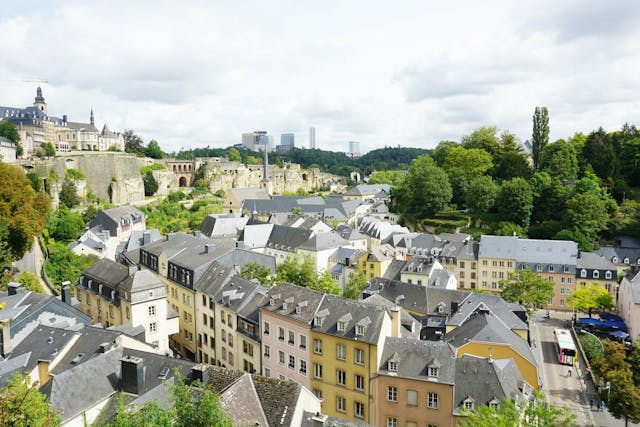Eco-education without borders: Luxembourg hosts the Benelux Climate Forum

Andrej Lišakov, Unsplash
In the heart of Remerschen, against the backdrop of spring nature, the Benelux Environmental Education Days, an international seminar dedicated to climate education organised under the auspices of the Luxembourg Benelux Presidency, takes place on 26 and 27 March 2025.
Luxembourg's Minister of Environment, Climate and Biodiversity, Serge Wilmes, opened the forum together with the Dutch Ambassador Carin Lobbezoo and the Deputy Secretary General of the Benelux, Jean-Claude Meyer. More than 100 participants - politicians, scientists, activists and young people - gathered at the Biodiversum Nature and Forest Centre to discuss how to effectively shape environmental thinking in new generations.
Serge Wilmes emphasised that environmental education is not just about imparting knowledge, but about developing active citizens capable of "understanding, anticipating and acting". Fighting the climate crisis, he said, requires efforts at all levels, from public to personal, and children and young people must be at the centre of this transformation - not only in schools, but also beyond.
Jean-Claude Meyer added that climate issues recognise no borders: "We have a duty to strengthen international cooperation - especially within the EU - to influence the global climate agenda."
The Forum programme is based on an interdisciplinary approach. Speakers included Jean-Pascal Van Ypersele, former Vice-President of the Intergovernmental Panel on Climate Change (IPCC), who presented up-to-date scientific data. Special attention was paid to psychological aspects, including the phenomenon of eco-anxiety, as well as examples of successful environmental initiatives in the Benelux countries.
On 27 March, youth climate delegates from Luxembourg, Belgium and the Netherlands will take the floor. They will present recommendations based on a year of active engagement in international structures. Two workshops will follow: one on how to integrate climate issues into school curricula and the other on strategies for effective communication on climate issues.
The event was not only a working platform, but also a celebration of 40 years of Benelux climate co-operation. Since 1985, this union has been an incubator of environmental initiatives, paving the way for a deeper integration of education and climate strategies. In 2025, eco-education is seen as the foundation for a sustainable future capable of shaping adaptive, critical thinking generations.
The final session of the workshop on 27 March will focus on the future: how to accelerate environmental transformation through schools, strengthen youth participation and create sustainable practices in the three countries. These initiatives reflect Benelux's growing ambition to be not just an observer but an active leader in Europe's climate policy.





